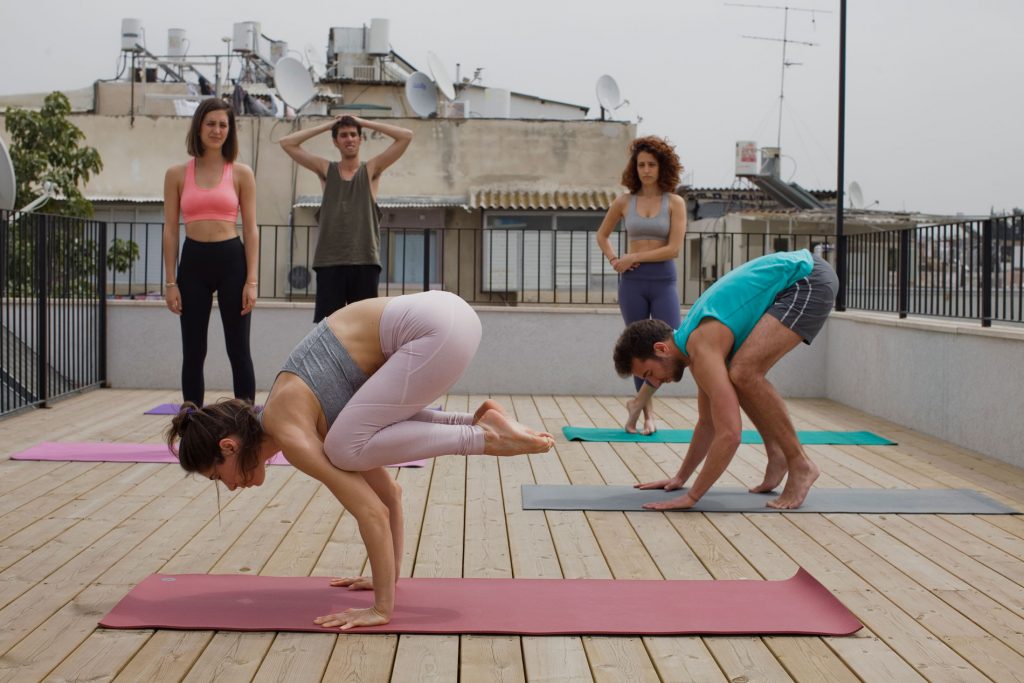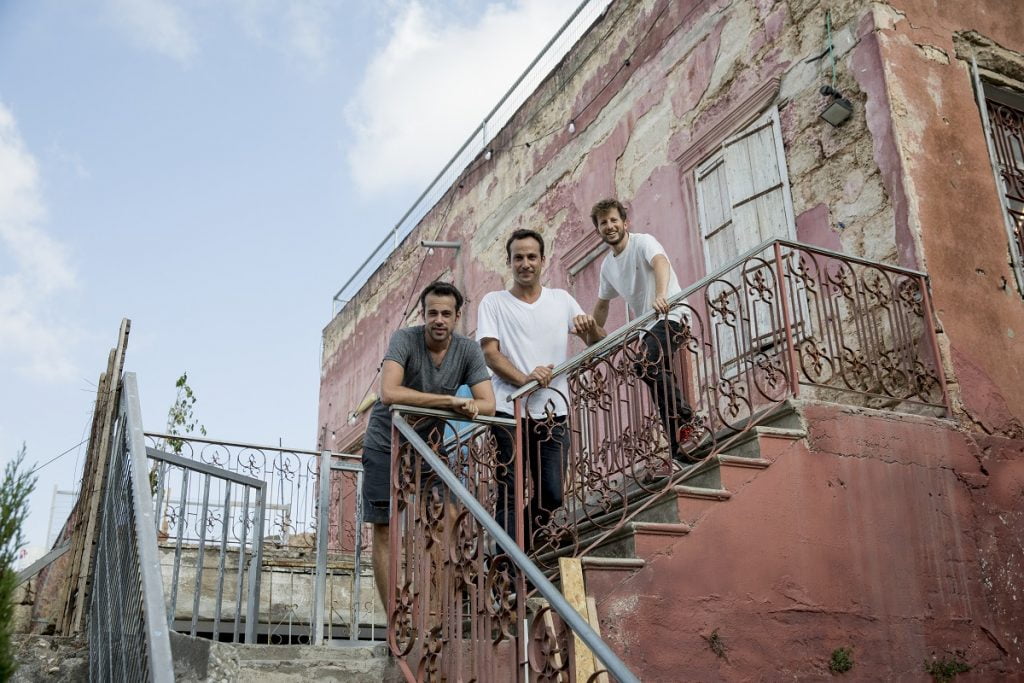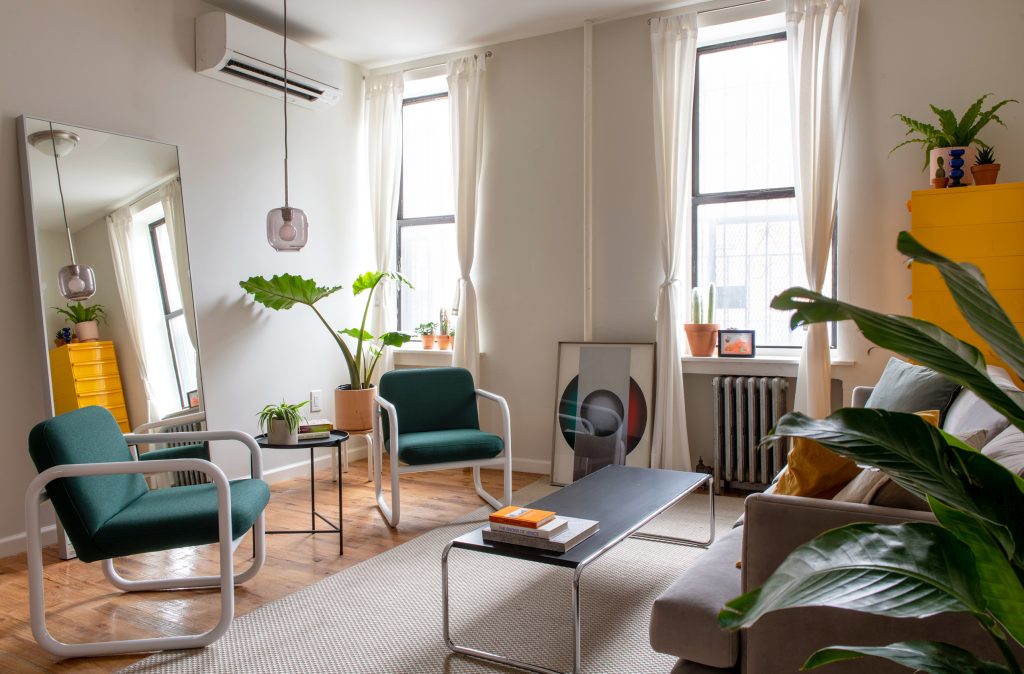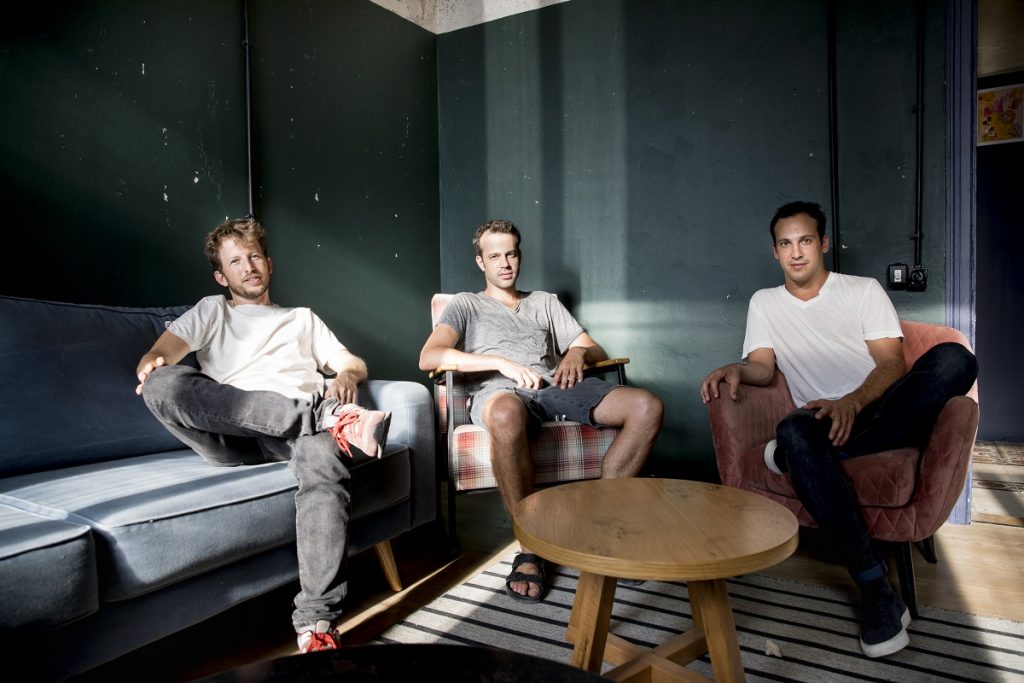Mister Rogers would probably have jumped on the opportunity to live in a Venn neighborhood. The Israel-based social urban planning startup Venn is creating a “new way of neighboring” and rebuilding communities in the world’s biggest cities.
“We’re trying to redesign the neighborhood experience,” Or Bokobza, Venn CEO, tells NoCamels.
Founded in 2016 by friends Bokobza, David Sherez and Chen Avni, this urban-tech startup is transforming developing neighborhoods into friendly communities.
SEE ALSO: CityTree, Tel Aviv’s Only Eco-Home, Is A Symbol Of Green, Communal Living
Bokobza points to a recently published post on what he means when talking about communities. “Our generation has searched for community online, but has found something missing. We need to rebuild community in the real world – close to us, in our neighborhoods, animating our lives,” he writes.
For Bokobza, Sherez and Avni, the idea of living near one another and raising their families side-by-side was a shared dream. They chose Shapira, an underserved neighborhood in southern Tel Aviv, as the site on which to build their vision: an urban renewal project that would include managing and refurbishing fair-priced real estate and developing shared spaces for the community. Moreover, they wanted their venture to support local businesses, give space for cultural community projects and even create jobs.

It was an experiment that went right. To date, there are Venn neighborhoods operating in New York (Bushwick), Berlin (Friedrichshain) and Tel Aviv (Shapira).
At the end of June, the company announced the completion of its Series A round with total funding of $40 million to help it fuel its mission to create urban neighborhoods that are more affordable. Investors included Pitango Venture Capital, Hamilton Lane, on behalf of the New York State Common Retirement Fund, and Bridges Israel.
The goal is to bring Venn to 100 cities by 2030.
The founders – who served in an elite army unit together — had wanted to bring the best elements of their childhoods to their new community vision. Bokobza and Avni (CXO-chief experience officer), grew up on agricultural cooperatives known respectively as a moshav and kibbutz, and Sherez (CREO) was raised in Tel Aviv, with friends nearby.
“We looked for a place where we could raise our families and keep our best friends nearby,” Bokobza says.

Building their own neighborhood was one thing. But Bokobza says that within the first 12 months of developing the Shapira neighborhood into what it is – and with constant growing demand from others to join – they realized they could replicate their sustainable model to transform other neighborhoods into communities as well.
Bokobza tells NoCamels that Venn is not to be confused with co-living developments, another community-oriented trend now gaining traction around the world. He reiterates that his company is transforming neighborhoods into vibrant communities – far beyond living in shared accommodation with communal amenities and spaces.
“We are trying to create a place where you walk down the street and go to the coffee shop and the barista knows your regular order, and when you go to the co-working space down the road you’ll see people you know,” he says in a telephone interview from New York, where he is now based in order to propel Venn forward to global markets.

Indeed, not unlike the popular children’s television series from the 1970s and 1980s when Fred Rogers would visit different places around his fictional neighborhood and talk to people about their work and their contributions to the community.
Sign up for our free weekly newsletter
SubscribeFeeling a sense of belonging in the big city is one of the main reasons the Venn neighborhood structure – as well as co-living developments – is in high-demand. In a way, these living options serve as an antidote to loneliness in the urban environment, says Bokobza.
“Loneliness is on the rise,” he says. “People are looking to be part of something that is bigger than them; to be engaged.”
Anyone who wants to join a Venn community neighborhood can do so, says Bokobza. There is no vetting of new residents but rather those who join know that they’re signing up to be part of a group. There are community potluck dinners and communal yoga classes; neighborhood culture projects and an atmosphere of knowing everyone next door.
Asked whether the community-style living doesn’t suffocate the individual, Bokobza says the opposite is true.
“When you are a part of something, you want to participate and be a part of your own neighborhood,” he tells NoCamels.

The Venn team says it recently asked nearly 1,000 residents of their neighborhoods what is working and what still needs to be tweaked for a better urban experience. The data shows that 98 percent of members feel socially supported and eight out of 10 Venn members say they feel life satisfaction.
“When it comes to cities that are becoming homes to more people every day, investment must be sustainable and forward-thinking,” Chemi Peres, Managing General Partner and co-founder of Pitango, said in a press release last week. “Venn stands out from other real-estate developers or proptech [property tech] startups in their belief that neighborhoods need a better business model – whereby ‘Social Return on Business’ is just as important as ‘Return on Investment.'”
“Venn encourages the sector to view real estate as a long-term ongoing process and community engagement is the only way to sustainably transform developing neighborhoods,” Peres added.
SEE ALSO: Urban Renewal Startup Venn Raises $40M To Reinvent Community Living
“We love the city. It keeps us energized and inspired. But we think it can be done differently – and better,” says Bokobza. “There’s an entire generation of people searching for a more meaningful, connected way of urban living. Somewhere within the madness of city life, they want more time to see friends, explore interests, and make an impact.”
Venn, he explains, is “reinventing the urban neighborhood by equipping our community of young urbanites with the tools they need to connect, collaborate and build a home beyond their houses.”
Viva Sarah Press is a journalist and speaker. She writes and talks about the creativity and innovation taking place in Israel and beyond. www.vivaspress.com
Related posts

Rehabilitation Nation: Israeli Innovation On Road To Healing

Israeli High-Tech Sector 'Still Good' Despite Year Of War





Facebook comments